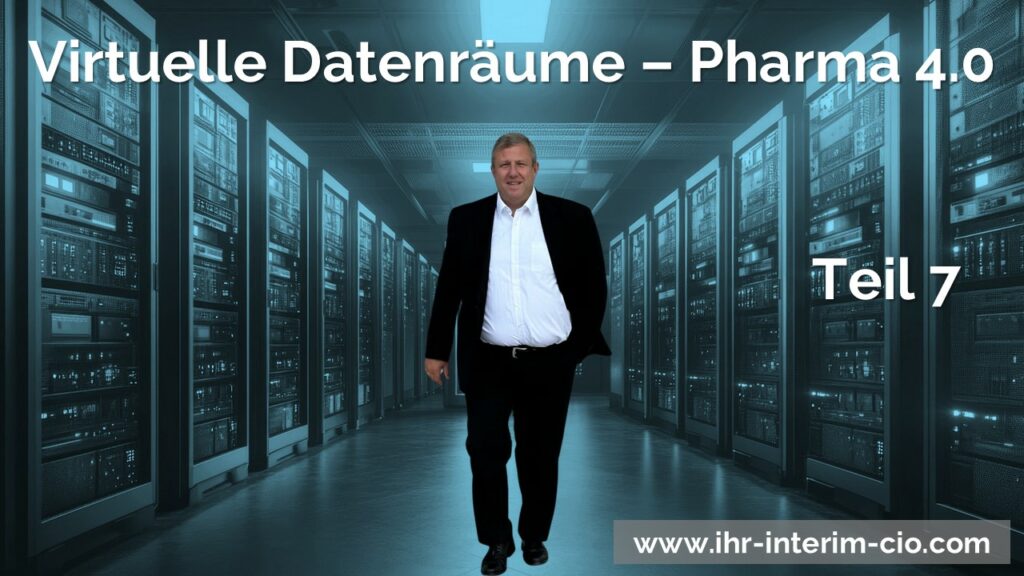
Interim CIO: Dr. Claus Michael Sattler
Real-time data and process optimization
New opportunities for CDMOs through IIoT platforms

In the rapidly evolving pharmaceutical industry, Contract Development and Manufacturing Organizations (CDMOs) face the challenge of continuously optimizing their processes while ensuring the highest quality standards. The Industrial Internet of Things (IIoT) and IIoT platforms in particular are opening up completely new opportunities for CDMOs to collect real-time data and optimize processes. In this blog post, we take an in-depth look at how CDMOs can use these technologies to increase their efficiency and remain competitive.
The importance of real-time data and process optimization for CDMOs
CDMOs play a central role in the pharmaceutical supply chain. They provide specialized services for the development and manufacture of pharmaceuticals and have to juggle a variety of customers, products and regulatory requirements. In this complex environment, real-time data and process optimization are critical to remaining competitive and meeting the increasing demands of the industry.
IIoT platforms as a key technology
IIoT platforms form the foundation for the implementation of Industry 4.0 concepts in CDMOs. They enable the networking of machines, plants and systems and thus create the basis for comprehensive data analysis and process optimization [source: 1].
How IIoT platforms work
An IIoT platform first collects machine data and status signals from the systems in operation and stores them in central digital databases. By visualizing the data, a just-in-time status overview of the producing plants and systems is obtained [source: 1]. This real-time data forms the basis for:
- Transparent and cumulative data
- Long-term evaluations
- Leaner processes
- Higher productivity
- Lower costs
Advantages of IIoT platforms for CDMOs
The integration of IIoT platforms offers CDMOs numerous advantages:
Increasing efficiency and reducing costs
By optimizing operational processes and implementing predictive maintenance, CDMOs can significantly increase their efficiency and reduce costs [source: 4].
Improved quality control
Real-time data enables continuous monitoring of product quality and a rapid response to deviations [source: 4].
Increased flexibility
IIoT platforms allow CDMOs to react quickly to changes in production or engineering and better meet individual customer requirements [source: 2].
Data-driven decision-making
By analyzing real-time data, CDMOs can make informed decisions and continuously improve their processes [source: 3].
Implementation of IIoT platforms in CDMOs
The successful implementation of an IIoT platform requires a strategic approach:
Needs analysis
CDMOs should first identify their specific requirements and define clear objectives for implementation.
Choosing the right platform
There is no one-size-fits-all solution. CDMOs should choose a platform that can be adapted to their specific needs [source: 3].
Integration into existing systems
Seamless integration of the IIoT platform into the existing IT infrastructure is crucial for success [source: 3].
Employee training
In order to exploit the full potential of the platform, employees need to be trained accordingly.
Continuous optimization
Implementing an IIoT platform is an ongoing process. CDMOs should regularly review and adapt their systems.
Case study: Process optimization through real-time data
A leading CDMO implemented an IIoT platform to optimize its production processes. By analyzing real-time data, the company was able to:
- Reduce throughput times by 30%
- Increase production efficiency by 25%
- Improve data quality by 40%
These results underline the enormous potential of real-time data and process optimization through IIoT platforms.
Challenges and solutions
The implementation of IIoT platforms also brings challenges:
Data security
CDMOs must ensure that sensitive data is protected. Modern IIoT platforms offer advanced security features such as encryption and access controls [source: 3].
Scalability
As data volumes grow, IIoT platforms need to be scalable. Cloud-based solutions often offer the necessary flexibility here [source: 6].
Interoperability
The integration of different systems and data sources can be complex. API-based integrations and standardized protocols can address this challenge [source: 6].
Future prospects
The future of real-time data and process optimization in CDMOs promises further exciting developments:
AI and machine learning
Advanced analytical methods will enable CDMOs to gain even deeper insights from their data and further optimize processes [source: 4].
Edge Computing
Processing data closer to the source will shorten response times and further increase efficiency [source: 4].
Digital twins
Virtual representations of production processes will enable simulations and optimizations in real time [source: 3].
Conclusion
The integration of IIoT platforms to leverage real-time data and process optimization offers tremendous opportunities for CDMOs. By implementing these technologies, CDMOs can increase efficiency, reduce costs and better respond to customer needs. Success in this new era will depend on the ability to effectively utilize these technologies and continuously innovate.
The journey towards full use of real-time data and process optimization is not only a technological change, but also requires a rethinking of the entire organization. CDMOs that successfully master this transformation will be able to deliver significant value to their customers and position themselves as leading players in the pharma industry of the future.
As an experienced interim CIO, I, Dr. Claus Michael Sattler, specialize in helping companies overcome precisely these challenges. With my expertise in implementing IIoT platforms and optimizing processes through real-time data, I can help your CDMO take full advantage of these technologies. Contact me today at www.ihr-interim-cio.com to learn how we can work together to equip your organization for the digital future of pharma.
Sources
- https://www.thyssenkrupp-materials-iot.com/de/blog/wie-iiot-plattformen-fabriken-fuer-industrie-40-fit-machen
- https://www.inneo.de/de/industrie-4-0/was-ist-industrial-iot.html
- https://www.maibornwolff.de/iiot-plattform/
- https://www.symestic.com/de-de/blog/iiot
- https://www.thyssenkrupp-materials-iot.com/de/blog/iiot-oekosysteme-fuer-mehr-wertschoepfung-durch-services
- https://www.inneo.de/de/industrie-4-0/iiot-plattform-thingworx.html
- https://www.ipa.fraunhofer.de/de/Publikationen/studien/IIoT-Plattformen.html
- https://www.yumpu.com/de/document/view/65724550/phpro-prozesstechnik-fur-die-pharmaindustrie-032021